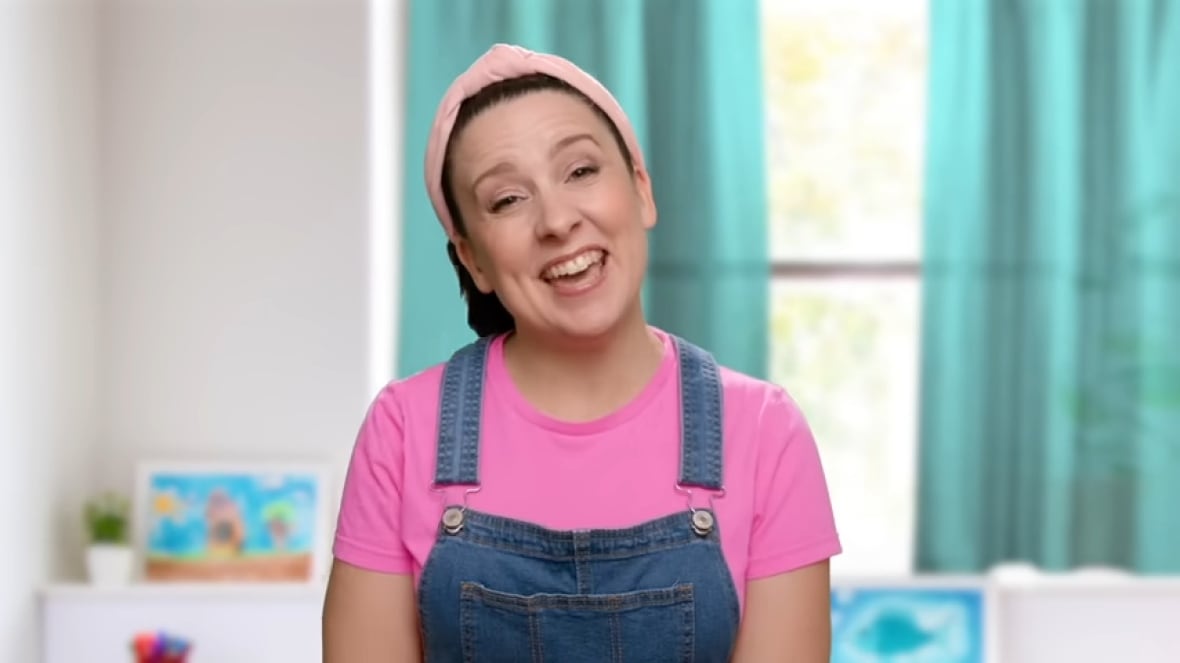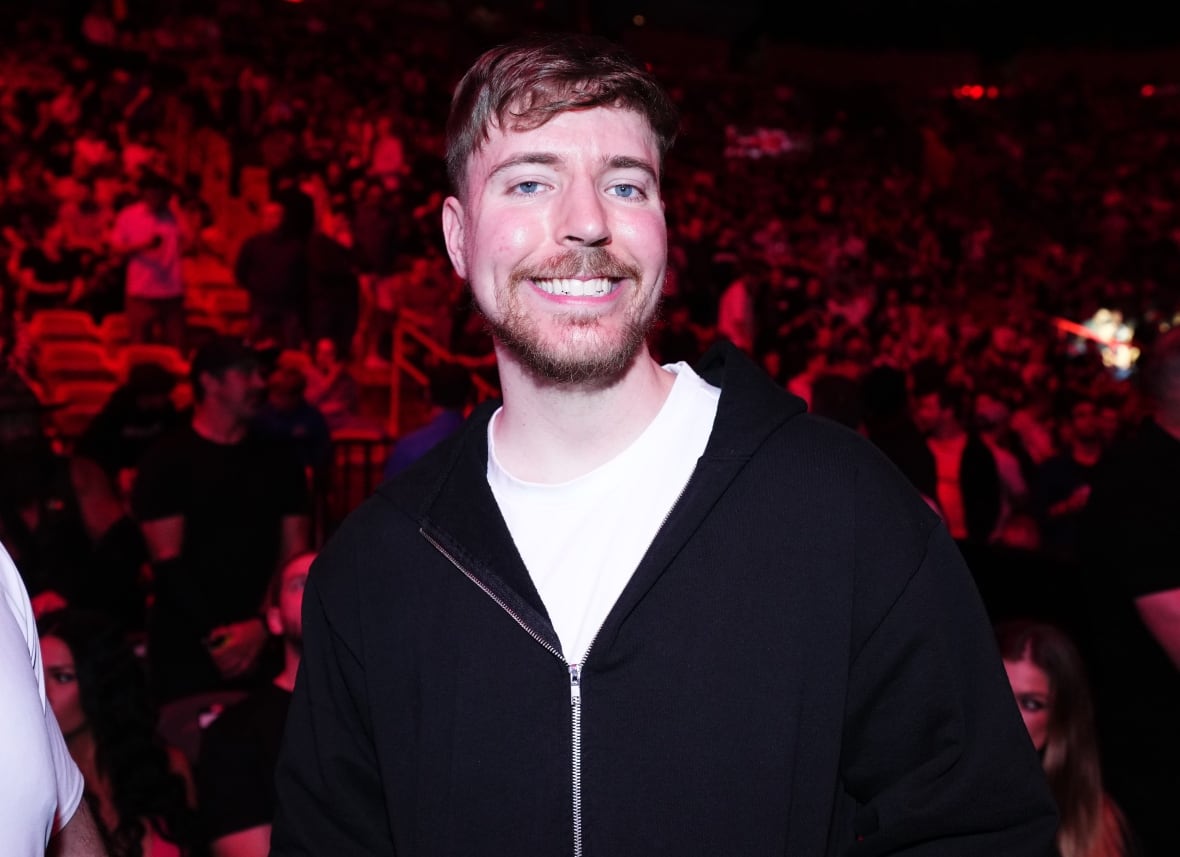The YouTube-ification of streaming? Why Netflix is making big deals with YouTubers

YouTube-ification? Is that a thing? It appears to be what's happening now with Netflix and other streaming services.
Some of YouTube's hottest creators are landing lucrative deals to bring their shows to even wider audiences on streaming services where bigger production budgets mean they can take their content to the next level.
Beloved children's educator and entertainer Ms. Rachel has done just that with her bubbly, toddler-friendly learning videos, which have amassed more than 11 billion views on her YouTube channel. The creator, whose real name is Rachel Accurso, partnered with Netflix earlier this year to license four existing episodes for the streamer while still continuing to upload monthly content for her 16 million YouTube subscribers.
It's a similar story for the Sidemen, a collective of seven British YouTubers who carry out wild stunts and do sketch comedy. They inked a deal with Netflix last year that saw them take their second season over to that platform, after saying they had hit the ceiling with what they could do at YouTube.
It may seem that Netflix and its fellow streaming giants are trying to scoop up talent from a platform that already made creators famous — and rich, thanks to ads, sponsorships and other revenues. But as Netflix and YouTube vie for the eyeballs on TV sets, Netflix (and other streamers) are increasingly using YouTube to test the waters for the kind of content viewers will flock to.

Philip Mai, co-director of the Social Media Lab at Toronto Metropolitan University, says companies like Netflix are trying to "meet the viewers where they are" and attract them with content without the risk of investing in an original production that may flop.
Clash of the video titansYouTube has more than 2.7 billion active monthly users worldwide logging on to its website and mobile app to watch everything from viral videos to news reports and series that are created by individual users and independent content production companies.
Netflix, however, has dominated the subscription-based video streaming market for years and has been an industry leader in creating original series and movies — and it's continuing to grow.
The company's chief financial officer, Spencer Neumann, said in March that the streamer is "not anywhere near a ceiling" when it comes to spending money on both licensed and original content. He estimated Netflix would spend $18 billion US on content this year alone, according to Variety.
He recognized there's stiff competition when it comes to viewers who are increasingly watching YouTube on their television sets, not just on its website or mobile app.
But Nemann said what set them apart, when it comes to content, is that Netflix shares "in the creative and economic risk with our creators," where as YouTube creators often start to build their content and audiences on their own.
But that's exactly why Mai says YouTube has become a testing ground for the streaming companies.
He says it allows them to watch what becomes popular and then approaching creators about the possibility of licensing their content or collaborating on a series.
"It's a cheaper way of doing development, without having to pay for the pilot," he said.
Called up to the big leaguesThat's what happened with The Amazing Digital Circus, an animated series created by independent Glitch Productions, based in Sydney, Australia.
The series only has five 25-ish-minute episodes on YouTube, but those have racked up a combined 750 million views since premiering in October 2023.
Kevin Lerdwichagul, Glitch's co-founder and CEO, said Netflix came knocking about six months after they dropped the pilot episode.
He compares it to being like a comedian scouted by a network television show while performing at open mic night.
"The new version of that is like going to YouTube and you're hoping someone like Netflix sees your product and then brings you along," he told CBC News.
Lerdwichagul says the audience for the series is teens and young adults, which remains a strong demographic for YouTube — and why it has no plans to abandon the platform — but going to a streaming service as well allows people "outside of that demographic circle" to discover the show.
"Our friends [and] parents started watching Digital Circus once and moved to Netflix," he said, adding that another Glitch series called Murder Drums has made its way to Amazon Prime.
What we're watching on the TVYouTube is also adapting to make content more easily viewed on televisions — and in ways that also make it easier for content to be adapted for streamers — such as allowing creators to make episodic content and have seasons.
That's because more and more people are watching YouTube, Netflix and other streaming services on their TVs.
But YouTube is the juggernaut.
In June of this year, YouTube accounted for 12.8 per cent of TV viewing, a number that has been rising consistently for the past year, according to ratings tracker Nielsen.
As for the streamers, Netflix still has the most eyeballs on it, with 8.3 per cent, followed by Disney (encompassing Disney+, Hulu and ESPN+) with 4.8 per cent.
As such, Andrew Peterson, who is YouTube's head of content partnerships in Canada, says it's not a surprise that streamers are keeping a close eye on YouTube content.
"We really see YouTube as the foundational home for so much creativity, where creators can build that audience," he said.

What is different about YouTube, says Peterson, is that creators can grow their channels and brands without the backing of a production studio or steaming deal and still hit it big.
Brandon Katz, director of insights and content strategy at U.S.-based Greenlight Analytics, says you only have to look to YouTube success story MrBeast as evidence.
The channel, created by American YouTuber Jimmy Donaldson, is the most-subscribed on the platform with a whopping 418 million followers.
Amazon Prime Video and production house Amazon MGM Studios scored a highly sought after deal with Donaldson in 2024, shelling out a reported $100 million US for him to create Beast Games, with players taking part in what has been dubbed the biggest reality competition series ever in pursuit of a $5-million US prize.

The first season was produced in Toronto and it was renewed earlier this year for Season 2.
But Katz says it's only the "cream of the crop" that will can "successfully transition to more traditional entertainment."
"You have to have a huge footprint already," he said. "You have have to content that is tailored to a new platform."
At the same time, he says, YouTube remains lucrative for the top content creators like MrBeast and Ms. Rachel who have become popular enough to expand their empires.
"The longer they exist on YouTube, the greater their following grows," he said, explaining that means they continue to make more off ads and sponsorships. "There's no way massive top one per cent creators are going to want to sacrifice all that."

cbc.ca




